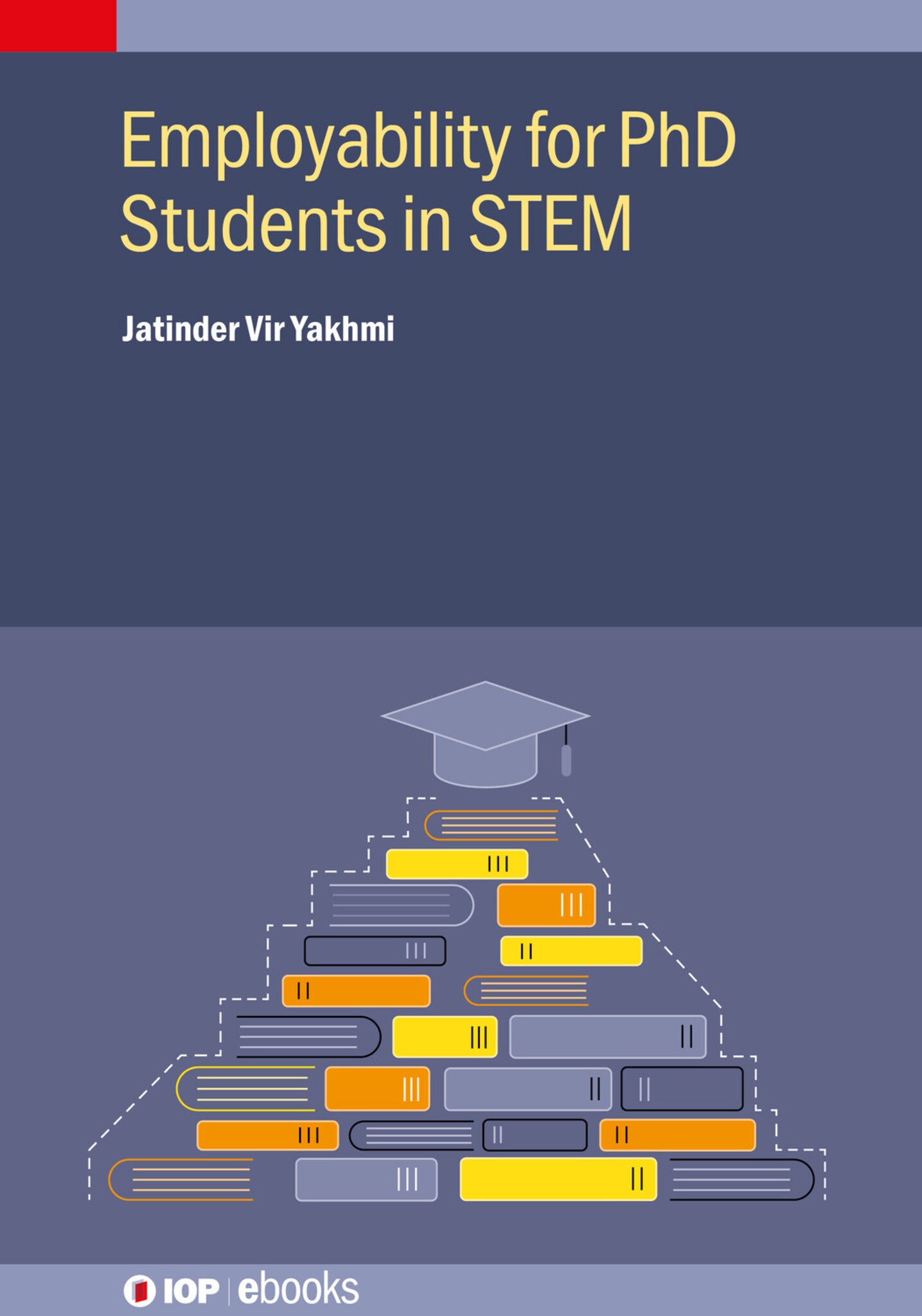We're sorry. An error has occurred
Please cancel or retry.
Employability for PhD Students in STEM

Some error occured while loading the Quick View. Please close the Quick View and try reloading the page.
Couldn't load pickup availability
- Format:
-
18 November 2024

One may have a degree qualification, even a PhD, that too a PhD in a STEM subject, but might still be struggling to get a job. We discuss 'WHY' does it happen, and how to get over that.
We shall discuss three most crucial skills required by STEM PhDs: communicating ably through technical writing; impactful public speaking before peer-audiences, or mixed audiences; and avoiding the trap of a 'single-subject cocoon' by gaining expertise in at least two, if not more, non-overlapping subjects. Besides, a STEM PhD should also stay ahead of the emerging digital technologies by learning to work comfortably with AI and related high-tech tools like big-data, machine learning and chatbots.
Key Features:
-
Discusses how students working for a PhD in STEM subjects can acquire essential skills and tune up to become employable for their dream jobs after graduation
-
Focuses on the need to use the PhD years to gain useful skills, particularly multidisciplinary skills and those relating to exponential technologies (such as AI, IoT, machine learning and cybersecurity)
-
Discusses issues that are particularly relevant to the current academic and professional landscape, such as overcoming disruptions to career growth
-
Covers skills including writing, public speaking, self-management, risk-management, collaboration, teamwork, conflict resolution, innovation and entrepreneurship
-
Explains how to grow as a leader and use every opportunity to build self-confidence and translate it into positive energy for the self and colleagues at work

EDUCATION / Counseling / Career Development, Careers guidance, TECHNOLOGY & ENGINEERING / Research, Advice on careers and achieving success, Higher education, tertiary education

Chapter 1: Learning science: a passion for STEM subjects: why do a PhD?
Chapter 2: Sailing through PhD work successfully
Chapter 3: Using PhD final year and just after to master useful skills—writing and public speaking
Chapter 4: Acquiring multidisciplinary skills to beat the ‘single-subject cocoon’ trap and ability to stay ahead of exponential technologies
Chapter 5: Mentoring, innovations, patents, entrepreneurships, and jobs
Chapter 6: Models adopted to upend education for supporting growth of graduate jobs
Chapter 7: Overcoming disruptions against career growth
Chapter 8: Growing to be a leader and staying on top



